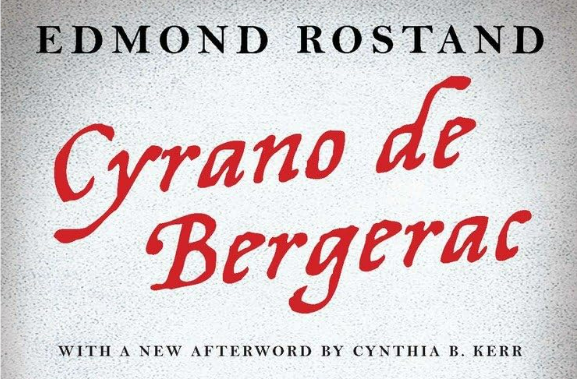Scene 1. II.
byScene 1. II. in Cyrano de Bergerac immerses the audience in the bustling energy of a Parisian theater, filled with the social elite. The theater is alive with a mixture of the city’s finest nobility, poets, and curious onlookers, each person contributing to the collective buzz of anticipation. Christian de Neuvillette, newly introduced to this world, finds himself distracted by the spectacle around him, but his attention is firmly focused on one individual—Roxane. His admiration for her runs deep, though it remains unspoken, and he anxiously scans the theater, hoping to catch a glimpse of her. As he navigates through the crowd with his companion Ligniere, a man known for both his quick wit and fondness for wine, Christian’s emotions are on full display. He finally lays eyes on Roxane, who sits in her box, radiating an elegant yet unattainable presence. Ligniere, noticing Christian’s intense fascination, introduces him to Cyrano de Bergerac, a figure whose reputation precedes him not only for his skill in combat but also for his poetic prowess. The mere mention of Cyrano piques Christian’s interest, further entwining the characters in a complex web of admiration, mystery, and fate.
The dynamics in the theater are further complicated as the nobility and other theatergoers continue their chatter, unaware of the shifting undercurrents beneath the surface of their conversations. The anticipation for the play is palpable, but the true intrigue lies in the looming possibility of Cyrano’s appearance. Cyrano, who is both celebrated and ridiculed, is a man whose presence carries weight in both the physical and social realms. While some view him with respect for his martial and intellectual abilities, others mock him for his conspicuous physical traits, particularly his large nose. This mixture of admiration and derision sets the stage for the complex dynamics that will unfold between Cyrano and those around him. In the midst of the lively social scene, Christian grapples with his feelings for Roxane, unsure of how to approach her or even how to present himself in the company of the aristocracy. Ligniere, on the other hand, remains unfazed by the social intricacies, relishing his pleasures and indulging in the carefree nature of his existence. His playful attitude contrasts sharply with Christian’s more earnest nature, creating a tension that will continue to shape their interactions. However, it is Cyrano’s looming influence that adds an unexpected layer to the evening, igniting curiosity and concern among the guests about how his presence will alter the course of the night.
The contrasting personalities of Christian, Ligniere, and Cyrano form the emotional heart of the scene, each character driven by their own desires, insecurities, and personal conflicts. Christian’s deep longing for Roxane is matched by his self-doubt and insecurity about how to express his feelings, especially in a world dominated by the expectations of nobility and social status. His admiration for Roxane is pure, but it is tempered by his fear that he lacks the eloquence or courage to win her favor. In contrast, Ligniere’s carefree nature and ability to navigate the social scene with ease provide a stark contrast to Christian’s internal turmoil. Ligniere’s more playful approach to life, characterized by his indulgence in wine and humor, serves as both a foil and a source of camaraderie for Christian, as the two bond over their shared experiences. Meanwhile, Cyrano’s reputation and the mention of his name add an air of mystery and tension to the scene. Cyrano, though not yet present, is already shaping the night’s events through the way he is talked about and the way his name is met with both admiration and mockery. His presence, even in absence, is felt, and it serves as a foreshadowing of the dramatic events to come.
The intersection of these characters’ desires and the social expectations that surround them sets the stage for a narrative filled with both humor and emotional depth. Cyrano’s reputation for bravery, intelligence, and humor creates a contrast with his personal struggles, especially his unspoken love for Roxane. While others might focus on status or appearance, Cyrano’s character is defined by his unwavering commitment to his principles, which leads him to act in ways that challenge the norms of society. His ability to navigate the world of duels, poetry, and wit while dealing with his own insecurities adds layers to his character, making him both a tragic and heroic figure. Christian’s introduction into this world of intrigue and complexity serves as a catalyst for the unfolding drama, as he must confront his own limitations and fears in order to pursue the woman he loves. As the evening progresses and the various characters’ paths continue to cross, the tension between personal desires and societal expectations will continue to shape the narrative, with Cyrano at the center of it all, acting as both a protector and a symbol of defiance against the constraints of his world.
Through the dynamics between Christian, Ligniere, and Cyrano, the play expertly explores themes of love, self-worth, and the societal pressures that shape individual actions. Cyrano’s blend of bravado and vulnerability is revealed through his interactions with those around him, and his reputation as a duelist and poet creates a figure who is both revered and misunderstood. The audience is drawn into this world of contradictions, where characters like Cyrano challenge the norms of society while grappling with their own desires and fears. This complex interplay of personal conflicts and external expectations lays the groundwork for the unfolding drama, ensuring that each interaction carries both emotional weight and dramatic significance. The interplay between comedy and tension, light-heartedness and seriousness, enriches the narrative, making Scene 1. II. a pivotal moment in the development of the characters and the thematic exploration of identity, love, and honor.


